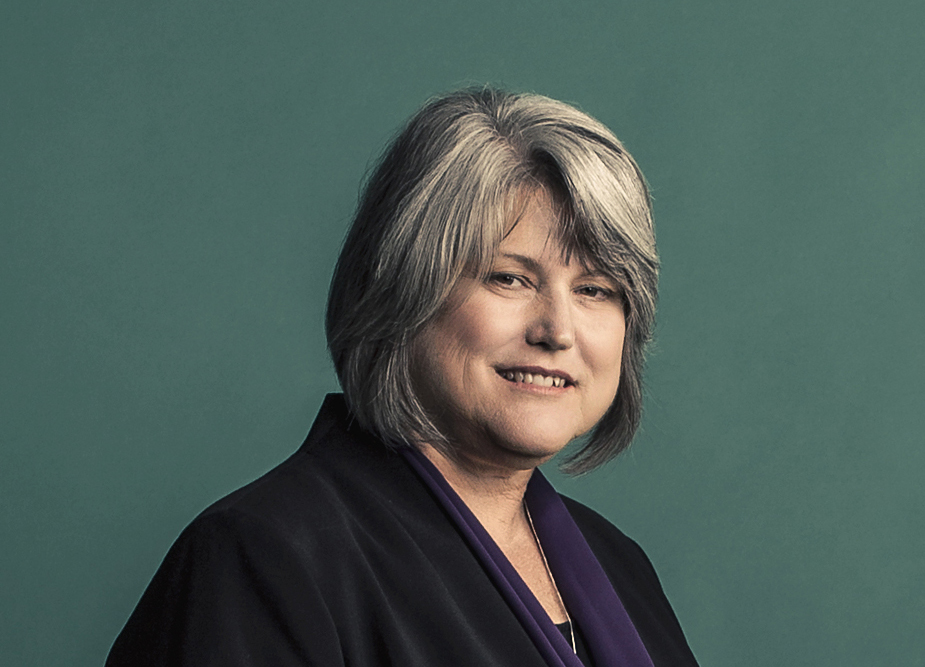
5 minute read
Content warning: this story contains references to financial abuse, and family and domestic violence.
On 20 and 21 October, the 2022 Conference on Women’s Safety and Financial Security was held at The Australian National University (ANU).
Hosted by the ANU Research School of Finance, Actuarial Studies and Statistics, the two-day conference was the innovation of Associate Professor Phong Ngo.
“My hope for this interdisciplinary conference is that by bringing together people who think differently, who are trained differently and who interact differently, and having them find common ground, we can start to make some real progress on the important issues of women’s safety and financial security,” says Phong.
Sharing their expertise, multi-disciplinary presenters, including researchers and policy makers, discussed the role that economic and financial security plays for women experiencing intimate partner violence (IPV), and considered solutions to this prevalent social problem.
Topics covered included labour market outcomes, gender inequality, financial abuse, and the legal and political determinants of IPV.
Among the presenters were keynote speaker Professor Judy Postmus, Dean of the School of Social Work at the University of Maryland, and panel discussion chair Rebecca Glenn, Founder and Chief Executive Officer of the Centre for Women's Economic Safety.
In the interviews below, Judy and Rebecca discuss the economic factors that contribute to IPV, what systems and policies need to be improved and implemented to drive change, and share some of their recent work in this space.
Judy

Q. As the keynote speaker of the conference, you spoke about building financial empowerment for survivors of domestic violence. What would you say are the first steps for survivors to begin the financial empowerment process?
The first step is safety, which is also the core step. For any change to occur, women need to be physically safe and also feel safe. They need to be in a place where they feel like they can take a breath and do things, they’re not in crises or worried about things. For some survivors, that can take a while – sometimes weeks – or it could be immediate.
Four other key steps are:
- intrapersonal empowerment – giving survivors the skills, financial knowledge and confidence to manage their money
- interpersonal empowerment – the empowerment gained through working with others, whether it’s family, systems or groups
- environmental empowerment – increased access to mainstream financial services and institutions
- changing financial behaviours – focus on survivors’ intentions and actual budgeting, spending, and saving behaviours.
Q. We understand the overarching goal of the conference was to consider solutions to the social problem of gendered violence. Why are events like this important for raising awareness, and what outcomes would you like to see as a result of the conference?
What was great about this conference, besides the fact it was here at ANU, was that it brought together multi-disciplinary and international researchers, policy makers and practitioners to talk about gender-based violence with a global perspective, and focus on economic abuse. Seeing economists, social workers, lawyers and government representatives in the same room and considering how we can all work together was a real highlight.
Are we solving gender-based violence from this conference? No, but it certainly opens some eyes and creates more awareness; it’s a first step and I’d love to see it continue.
Q. Your research is focused on the physical, sexual, and economic victimisation of women. Can you tell us about a recent project that you have worked on?
I’m currently a Dean, so it means my focus is more administrative, and that’s why the conference was so great, because I got to dive back into my research.
A recent project is my forthcoming book, Building Financial Empowerment for Survivors of Domestic Violence: A Path to Hope and Freedom, which is co-authored by Amanda M. Stylianou. My book is kind of a labour of love, because it’s on my academic work, and also some of my pre-academic work, when I worked in domestic violence.
Rebecca
 Q. The conference focused primarily on the economic factors that contribute to IPV. What aspects of IPV are most overlooked or misunderstood?
Q. The conference focused primarily on the economic factors that contribute to IPV. What aspects of IPV are most overlooked or misunderstood?
The association between poverty and IPV is often misinterpreted, with IPV being seen as a problem of “poor people” rather than a problem that creates poor people. Of course, that’s over simplifying the issue and we know that poor people also experience IPV, but the deliberate choices of perpetrators to exert control through economic means, and cause financial hardship and poverty for victims, is one of the most overlooked and misunderstood aspects of IPV.
Q. What systems or policies need to be improved or implemented to make an IPV survivor’s journey easier to navigate?
Almost every system needs to be reimagined through the lens of family and domestic violence. The most urgent changes are needed to social security, family law and child support. There is also more to do in the corporate sector, with improvements needed to financial products as well as utilities and telecommunication operators. The community sector also requires change to build a deeper understanding of economic abuse and the range of ways abuse can be experienced.
Q. You founded the Centre for Women’s Economic Safety (CWES). Can you tell us a bit about what CWES does, and how researchers and others can get involved?
The CWES exists to support women, non-binary and gender-diverse people experiencing economic abuse in the context of domestic and family violence, and to reduce its impact. We reflect women’s lived experiences of economic abuse back to the people in organisations that are responsible for the products, services and systems that compound the injustice victim-survivors experience. Things don’t have to be as hard as they are and it’s a travesty that we continue to believe and support perpetrators, while judging and shaming victims.
There are plenty of areas that need more research – including cost and benefit analyses of different interventions, changing perpetrators mindsets around financial control, and developing robust frameworks for financial safety. We’re interested to work with people who share our concerns.
The College is always keen to explore research collaborations with the public and private sector and to reconnect with alumni. Please get in touch if you would like to know more about partnering with us.
